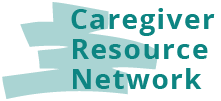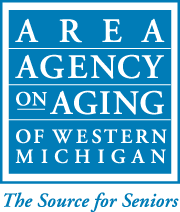Podcast
The podcasts of the Caregiver Resource Network(CRN) were created by CRN members with the hope that community members might share some wisdom from experts in the area of aging.
We hope that you might listen and enjoy some of the podcasts while you travel or relax.
Episodes
Medication Mismanagement
Episode: 17
Duration: 28:34
How common are medication mismanagement issues in older persons? What red flags should one look for in regard to potential medication mismanagement issues? If one sees such red flags what might be going on? How common is self medication involving the use of alcohol and/or other substances? What are its potential causes? As a professional, what types of questions would you ask in an interview with a concerned family caregiver? (see below): Where might family caregivers turn for help if they are concerned about either medication mismanagement, alcohol and/or substance misuse?
Chronic Disease Management
Episode: 16
Duration: 28:56
What is the difference between acute and chronic conditions? How prevalent are chronic conditions among older adults? In your opinion, what is the number one thing anyone living with a chronic condition should know? How can caregivers stay engaged in their interests? What can caregivers do to help those they care for in terms of chronic conditions? Tell us more about the chronic disease self management program developed at Stanford University? What techniques to people learn in the Chronic Disease Self Management Program? How can caregivers benefit from the CDSMP? How can someone find out if there are CDSMP programs offered in their area? What role does staying active play in caregiving and in chronic illness? How do you define a chronic disease? What is the prevalence of chronic diseases in the community? What are the important factors for patients and their families/caregivers to be aware of when managing their chronic illness? Is it expected that the patient's condition will deteriorate when faced with a chronic condition? How can the caregiver support the patient with a chronic condition? How does the patient/caregiver know that the patient is receiving the best evidence based care?
Long Distance Caregiving
Episode: 15
Duration: 29:05
What is long distance caregiving? What does a long distance caregiver do? How will I know if help is needed? What can I really do from far away? There are several siblings involved and we're meeting to discuss our parent's care, how can we decide who does what? How can I encourage my parents to get more help? How can I keep up with my parent's medical care? I don't know where to start. If I have to hire someone to help my parents how can I be sure they're reputable and trustworthy? How can I help my parents decide if it's time for them to move? My dad's condition has worsened and now when I talk to my mom she sound exhausted, how can I lighten the load for my mother? What happens if my mother gets too sick to stay at home? She asked me to promise I wouldn't "put" her in a nursing home. What can I do to take care of myself?
Critical Issues for Caregivers
Episode: 13
Duration: 28:27
Many of the struggles that individuals and families experience in caregiving may have a relationship to the fact that people often have difficulties in accepting the aging process. How is acceptance of aging possible? How can we come to an understanding of age related loss? How do we help aging individuals to adapt to age related loss? What are the family changes that occur during the aging process, and how might they impact the caregiving process? How can the threat of change be diminished? Has the groundwork been laid for the next step in life? Why is this pre-planning important? What contributes to resistance in caregiving? What is helpful to diffuse resistance?
Long-Term Care
Episode: 12
Duration: 28:16
I have a list of facilities in my area, what do I do now? What questions should I ask nursing home/assisted living staff when my loved one and I are looking into a nursing home/assisted living? The facility in which my loved one would like to go does not have any openings. What now? I don't think my loved one can afford a facility now, or will not be able to afford a facility for very long. What are our options? My loved one does not want to go to a facility, do we have any other choices? I am "burned out" as a caregiver, what can I do? What are the differences between nursing homes and "assisted living"? How do we know what to look for in a good nursing home or assisted living? Where can we find out more about choices in our area? How do we learn about past performance of a nursing home and its staff? Who do we turn to if there are problems in the long term care facility we have chosen? Who can make decisions for our loved one with dementia? What do we do if our loved ones are asked to leave a facility on short notice because of behaviors or insurance problems?
Mental Health Issues
Episode: 11
Duration: 28:30
As a family caregiver, whether you are a spouse or an adult child, what kinds of mental health problems do you see in the patient or the care recipient? What factors do you see contributing to someone having a mental health problem later in life? What would you want to say to a family caregiver who is caring for a loved one that they think has a mental health problem? What sort of things could influence their mental status? As a family caregiver, what do I need to know about my loved one's diagnosis? As a family member, what can I expect if my loved one has dementia? As a family member, why would I want to encourage my loved one's doctor to refer to a mental health specialist? What do you say to family caregivers who thinks their loved one has depression? What are the symptoms of depression? How can I know if I have it, or if my loved on has it? What else would you want to say to a family member who is concerned about their loved one with depression - what are tricky pieces of this illness to deal with?
Professional Caregiving
Episode: 10
Duration: 28:39
What is a professional caregiver and how does that differ from other types of caregivers? How do I know that it safe for a professional caregiver to come into my home? What can be done to insure that my loved one is cared for in the same manner that I would do it myself? How can I be involved in the selection process of who comes into my home? How are professional caregivers trained? What happens if I don't like my professional caregiver? What type of financial arrangements for services should be entered into with a professional caregiver? What are the advantages of utilizing the support of a professional caregiver? What types of support can a professional caregiver provide? What types of schedules might a professional caregiver work? How do I begin looking for a professional caregiver? What are the advantages/disadvantages of hiring a caregiver privately vs going through an agency? How are professional caregivers supervised? What types of services can professional caregivers offer? What other options are there to having someone come to the home? What types of communication can I expect or put into effect so I know what is going on? What kind of information resources are available to help families sort out caregiving issues? What other products/systems are helpful to maintaining someone safely at home? What can a caregiver do to take better care of themselves? What about backup plans? What are some of the legal issues related to caregiving?
End of Life Care
Episode: 9
Duration: 28:04
How can hospice care help individuals and their families at end of life? What are some of the common misunderstandings about hospice care? What are some of the decisions that families are faced to make when one of their members is faced with a life limiting illness Are there some things folks can do to help prepare and therefore make that end of life process a little bit easier? What is one of the biggest challenges that a person facing the end of his or her life must meet? What does a person or family need to do if they are interested in hospice care? How does pain and symptom management especially at the end of life contribute to health and well being for caregivers? Aren't all health care professionals well versed in pain and symptom management related to end of life care? Can the crisis of stress filled decision making during the end stages of terminal illness or when it is the right time for end of life care be lessened? What kinds of things can caregivers do to establish and sustain their own health and wellness during this crucial time of their loved one's illness? When should one consider having discussion with family and loved one's regarding what I would like for end of life care? Who should be included in the conversation? What is hospice care and how do I know when it is time for it? Once I choose hospice care how do I know the members of the health care industry aren't just giving up on me and/or not giving me the best care available? How do I know how to make the best and the right decisions about the kind of care I need and who should provide that care?
Respite Care
Episode: 8
Duration: 27:56
Safety in the Home
Episode: 7
Duration: 27:56

